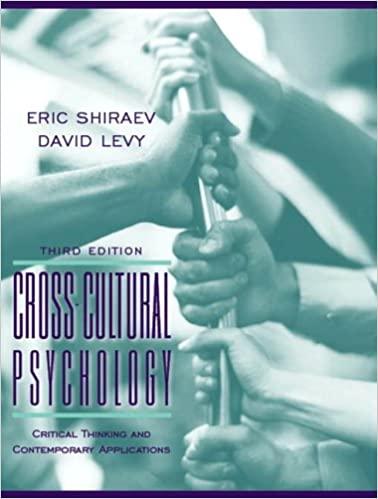Question
In a landmark 2005 decision, the United States Supreme Court ruled that murderers who were younger than 18 at the time of their crime should
In a landmark 2005 decision, the United States Supreme Court ruled that murderers who were younger than 18 at the time of their crime should not be put to death. In order to reach their conclusion, the justices relied heavily on psychological and neurological research showing that the brains of adolescents are not fully mature until around 20 years old. In particular, the frontal lobeswhere much of our ability to process the consequences of our actions is locatedare usually among the last areas of the brain to fully mature. This, along with other evidence showing that teenagers often lack the ability to control their impulsive behaviors, led the majority of the justices to conclude that adolescents younger than 18 are not fully culpable for their actions. In fact, this was similar to the reason why the Supreme Court barred the execution of the intellectually disabled several years earlier.
The question of whether teenagers are legally responsible for their actions raises a host of interesting questions for students to consider. For example: If teenagers have impaired judgment and lack the ability to control impulsive behavior, can they be held responsible for any of their actions? Where should the line be drawn? Does the Supreme Court's ruling barring the execution of criminals 17 and younger equate being a teenager with a form of mental retardation? If so, do students feel that this is accurate? If compulsive stealing were shown to have neurological causes, does this mean that kleptomaniacs could not be held legally responsible for their actions? Should a person with high testosterone levels be legally culpable for any violent acts they might carry out? How much of our behavior is biological, and how much is personal choice?
Step by Step Solution
There are 3 Steps involved in it
Step: 1

Get Instant Access to Expert-Tailored Solutions
See step-by-step solutions with expert insights and AI powered tools for academic success
Step: 2

Step: 3

Ace Your Homework with AI
Get the answers you need in no time with our AI-driven, step-by-step assistance
Get Started


